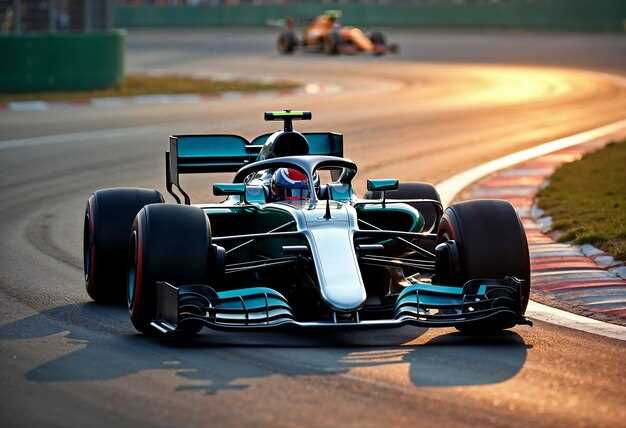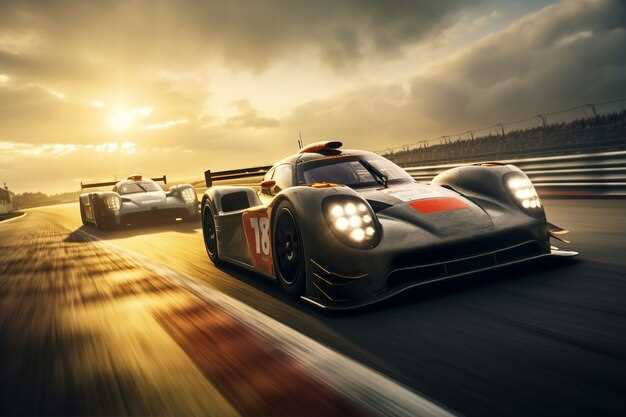
For over a century, BMW has been synonymous with automotive excellence, showcasing a robust heritage that intertwines with the world of motorsport. From the early days of aviation engines to the exhilarating races on the track, BMW has carved a niche for itself, reflecting a relentless pursuit of performance and innovation. This legacy is not merely about speed; it embodies a commitment to engineering prowess and a passion for crafting machines that dominate the racing circuit.
The journey of BMW in motorsport has been marked by significant milestones that underline its influence across various racing disciplines. Each decade brought forth revolutionary technologies and iconic models that not only redefined the standards of performance but also solidified BMW’s reputation as a formidable contender in the automotive arena. As we delve into the intricate tapestry of BMW’s motorsport history, we will explore how the brand’s dedication to racing has shaped its identity and impacted the automotive landscape.
From winning prestigious championships to setting benchmark times in endurance races, BMW’s commitment to performance has always been evident. This article aims to take you on a journey through time, showcasing the pivotal moments that highlight BMW’s position as a leader in motorsport and its unwavering connection to speed, precision, and excellence.
Iconic BMW Racing Models That Defined Performance Standards

BMW has a rich heritage in motorsport, with numerous racing models that have redefined performance benchmarks in their respective eras. Among these, the BMW 328 stands out as an early icon in the pre-war period. Introduced in the late 1930s, the 328 showcased advanced engineering with its lightweight construction and a powerful 2.0-liter six-cylinder engine, winning prestigious events like the Mille Miglia and establishing a legacy of speed and agility.
In the late 1960s, the BMW 2002 Turbo emerged, marking the brand’s foray into turbocharged performance on the racetrack. This model not only captivated enthusiasts with its spirited handling but also laid the groundwork for future turbocharged innovations in racing. The 2002 Turbo’s combination of lightweight design and turbo efficiency created a new performance standard that influenced generations of racing automobiles.
The 1970s brought forth the BMW M1, BMW’s first mid-engine sports car and the flagship model of the M division. The M1 was not just a racing car; it was a statement of intent for BMW’s motorsport ambitions. With a 3.5-liter inline-six engine, it achieved remarkable performance metrics and participated successfully in Group 4 racing, further establishing BMW’s dominance in this competitive arena.
Entering the 1980s, the BMW E30 M3 became a defining figure in touring car racing. Renowned for its balanced chassis and high-revving four-cylinder engine, the E30 M3 secured multiple victories in various championships, including the German Touring Car Championship (DTM). Its success on the track made it an icon both in motorsport and among car enthusiasts, influencing car design and tuning for decades.
Fast forward to the 2000s, the BMW Z4 GT3 embodied cutting-edge performance technology. This model excelled in endurance racing, leveraging advancements in aerodynamics and powertrain efficiency while maintaining BMW’s tradition of exceptional driving dynamics. Its impressive track record in international endurance competitions solidified BMW’s reputation as a formidable competitor in the endurance racing scene.
Finally, the BMW M8 GTE represents the brand’s latest technological breakthroughs in racing. Competing in the FIA World Endurance Championship, the M8 GTE combines powerful performance with innovative engineering solutions, including advanced aerodynamics and hybrid technologies. This model exemplifies BMW’s commitment to evolving performance standards while honoring its storied motorsport legacy.
Key Milestones in BMW’s Motorsport History: Championships and Innovations

BMW has consistently demonstrated its commitment to performance through various championships and groundbreaking innovations in the realm of racing. One of the earliest milestones occurs in 1929, when BMW secured its first major victory at the 24 Hours of Le Mans. This event marked the beginning of its legacy in endurance racing, showcasing its engineering prowess.
Throughout the 1930s, BMW further established itself with the introduction of the BMW 328, which became famous for its exceptional speed and handling. It dominated sports car racing in Europe, winning the Mille Miglia in 1940, solidifying its reputation as a force to be reckoned with in motorsport.
The post-war era saw BMW revitalizing its racing activities with the launch of the 501 model, followed by the iconic BMW 2002 in the 1960s. The latter played a pivotal role in the development of touring car racing, leading to multiple championships in the European Touring Car Championship during the early 1970s.
As the 1980s approached, BMW revolutionized performance in motorsport by introducing the BMW M division. The BMW M1 was launched in 1978, marking the first mid-engine sports car for the brand. This innovation paved the way for subsequent models to excel in racing, including the legendary BMW M3, which won numerous titles in the DTM (Deutsche Tourenwagen Masters) series and became a benchmark for performance in touring car racing.
The 1990s were defined by BMW’s successful campaigns in Formula 1 and the Le Mans Series, where advancements in technology, including the development of turbocharged engines, strengthened their competitive edge. The partnership with Williams F1 resulted in several championships, showcasing BMW’s engineering excellence on the global stage.
In recent years, BMW has embraced electrification in motorsport, debuting its first fully electric racing car, the BMW i4, in various eSports championships and racing events. This shift signifies a new era for the brand, emphasizing sustainability while maintaining the high performance standards that fans have come to expect.
Throughout its history, BMW has not only celebrated championships but has also engineered milestones that continue to influence the racing industry. Its commitment to innovation and performance ensures that the legacy of BMW in motorsport will endure for decades to come.
How BMW’s Racing Technology Influences Their Production Vehicles
BMW has long been synonymous with motorsport, utilizing its racing technology to enhance the performance of its production vehicles. The company’s commitment to motorsport has resulted in innovative developments that translate directly into consumer models.
One of the key ways BMW integrates racing technology is through its engine development. Motorsports provide a testing ground for advanced powertrains, allowing engineers to refine performance features before they reach the assembly line. This leads to:
- Higher horsepower and torque outputs
- Improved fuel efficiency
- Advanced turbocharging techniques
Additionally, suspension systems and chassis design are heavily influenced by BMW’s experiences on the racetrack. The learnings from racing translate into better handling and stability in production vehicles. Key advancements include:
- Adaptive suspension technologies that enhance ride quality
- Lightweight materials for reduced weight without sacrificing strength
- Precision steering systems for enhanced driver feedback
Aero-dynamics is another critical area where racing technology impacts production models. Exposure to high-speed racing scenarios enables BMW to develop:
- Streamlined designs to minimize drag
- Active aerodynamics that adjust based on driving conditions
- Better overall stability at high speeds
Furthermore, BMW’s commitment to safety, informed by motorsport regulations, enriches the design of its road cars. High-performance vehicles share safety technologies such as:
- Advanced braking systems developed from racing brakes for quicker stops
- Reinforced body structures for improved crashworthiness
- Enhanced electronic stability control systems for better handling
In conclusion, BMW’s racing technology not only elevates performance on the track but also significantly influences the design and engineering of their production vehicles. This synergy ensures that every BMW on the road inherits the spirit and performance benchmark set by its racing heritage.
